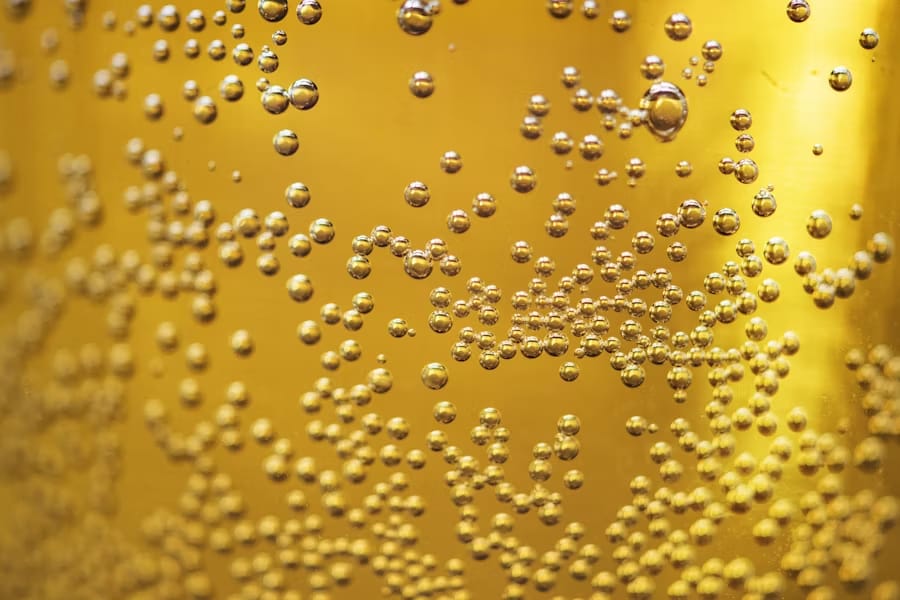- Aeviva
- Posts
- The Unexpected Nutritional Facts About Beer
The Unexpected Nutritional Facts About Beer
Beer isn’t just empty calories. Here’s what you didn’t know about its surprising nutritional profile—and how to enjoy it mindfully.
When people think of beer, they usually think of social gatherings, sports events, and (let’s be honest) hangovers—not nutrition. But while beer is far from a superfood, it does contain a few surprising nutrients that most people overlook.
So, is beer just empty calories, or could your occasional pint offer more than just refreshment? Let’s take a closer look at what’s inside a glass of beer and how it interacts with your body.
The Good: Beer’s Hidden Nutrients
Believe it or not, beer contains several beneficial compounds thanks to its ingredients—grains, yeast, and hops. Here’s what you might be getting in small amounts:
B Vitamins (B2, B3, B6, Folate): Beer contains trace amounts of B vitamins from the brewing yeast, supporting energy metabolism and nervous system health.
Silicon: Found especially in certain pale ales, silicon helps support bone density and joint health.
Antioxidants (Polyphenols): Derived from hops and barley, beer contains polyphenols—natural compounds that may help reduce oxidative stress.
Potassium & Magnesium: Some beers contain minor amounts of electrolytes like potassium and magnesium, which are important for hydration and muscle function.
Soluble Fiber (Beta-Glucans): Unfiltered or craft beers sometimes retain a small amount of soluble fiber from barley, which can support gut health.
💡 Fun Fact: According to some studies, beer contributes to around 10% of dietary silicon intake for moderate drinkers.
Beer’s Ancient “Functional Beverage” Roots
Long before modern brewing, early civilizations consumed fermented grain beverages that resembled primitive beers. These drinks were sometimes fortified with herbs and medicinal botanicals, serving as both nourishment and “medicine” for ancient cultures.
In some cases, beer was even safer than local water sources due to the fermentation process killing off harmful bacteria. While modern beer isn’t exactly a health elixir, its origins hint at its past as a functional beverage—delivering calories, hydration, and micronutrients.
The Healthiest Beer Styles (Nutritionally Speaking)
While all beers share a basic nutritional foundation, certain styles offer a higher nutrient yield than others:
Pale Ales & IPAs: Higher in silicon due to increased hops and malt content.
Unfiltered Wheat Beers: Retain more soluble fiber and yeast, offering extra B vitamins and prebiotic benefits.
Sour Beers: Often brewed with probiotic cultures, contributing to gut health (in small amounts).
Dark Beers (Porters & Stouts): Contain higher levels of certain antioxidants from darker malts.

💡 Pro Tip: Craft and small-batch beers typically undergo less filtration and pasteurization, which may preserve more polyphenols and micronutrients.
The Caveats: Why Moderation Still Matters
Let’s be clear—beer is not a supplement, and overconsumption can have well-known downsides:
Empty calories can contribute to weight gain if consumed excessively.
Alcohol impacts liver health, sleep cycles, and hydration levels.
Frequent drinking may negate antioxidant benefits, tipping the balance toward inflammation and oxidative stress.
💡 Fun Fact: The so-called "French paradox" applies here too—moderate alcohol consumption, paired with nutrient-dense meals, may have protective health effects compared to heavy drinking or complete abstention.
How to Enjoy Beer Mindfully
To balance enjoyment with wellness:
Pair your beer with protein and healthy fats to stabilize blood sugar.
Alternate alcoholic drinks with water or electrolyte-rich beverages to stay hydrated.
Opt for lower-ABV, craft, or unfiltered styles when possible.
Reserve beer for social or celebratory settings, rather than daily consumption.
Prioritize quality over quantity—one nutrient-dense craft beer beats several light beers nutritionally.

💡 Fun Fact: In some European traditions, post-workout beers are common in moderation, especially when paired with salty snacks to replenish electrolytes.
Interactive Section: Food Pairing Challenge

What’s your favorite way to enjoy a beer?
[ ] With a protein-packed meal (think fish, steak, or tofu)
[ ] With salty snacks like nuts or olives
[ ] With pizza or comfort food
[ ] I’m more into wine or non-alcoholic options
💡 Pro Tip: Pairing beer with the right foods can help mitigate some of its metabolic downsides!
Beer isn’t going to replace your supplements or your superfood smoothie—but it isn’t entirely devoid of nutritional value, either. With trace minerals, antioxidants, and even small amounts of B vitamins and silicon, beer offers more than just empty calories (when enjoyed mindfully).
The key is balance. A well-chosen beer can complement a healthy lifestyle when consumed with awareness and paired wisely.
Would you like me to follow this up with a guide on non-alcoholic craft beers and their nutritional perks next?
Take-Home Summary
Beer contains trace B vitamins, silicon, polyphenols, and minerals from its brewing ingredients.
Unfiltered, craft, or traditionally brewed beers may retain more nutrients than mass-produced lagers.
Moderate beer consumption paired with healthy meals can help balance its effects.
Mindful drinking means focusing on quality and hydration alongside your pint.
Reply